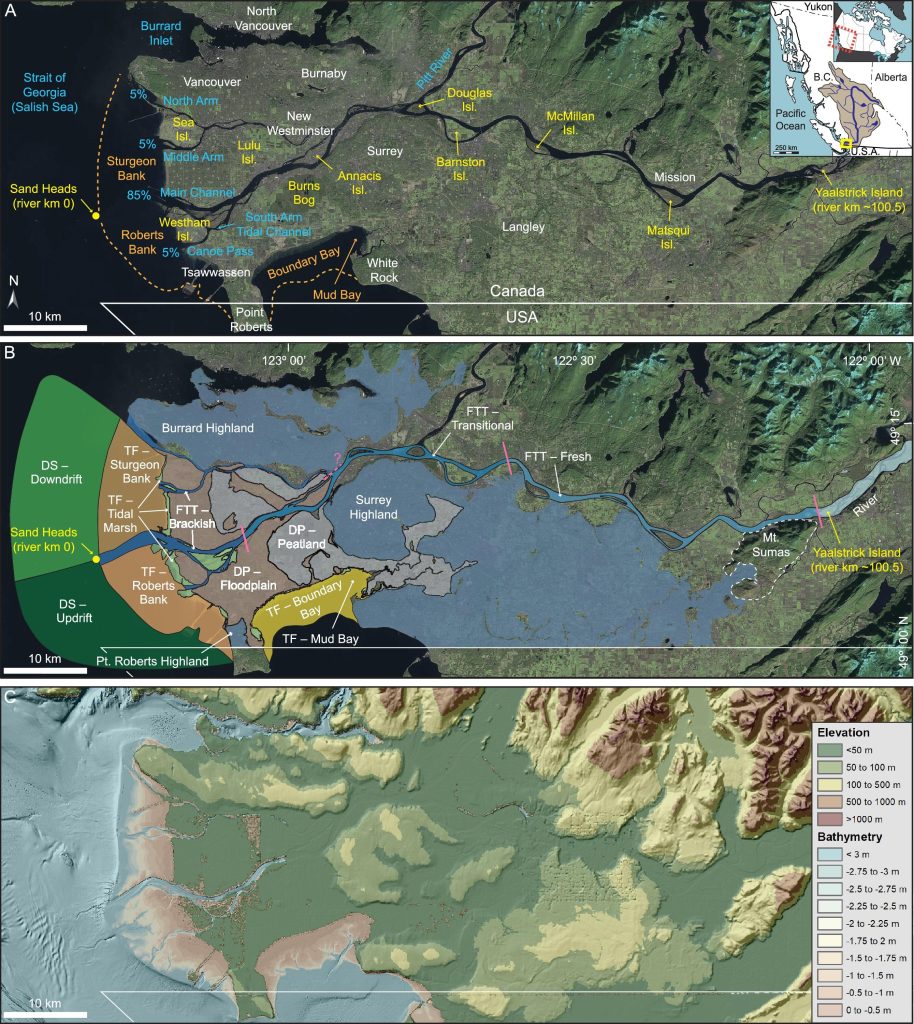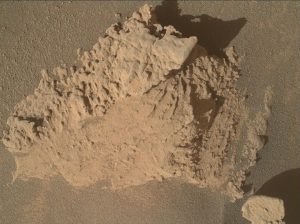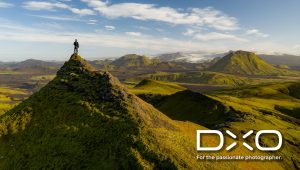
The Fraser River is unique among the world’s great rivers—a huge, relatively natural, undammed, mountain river running through a dense urban area.
But a lack of monitoring and poor management could threaten much of what makes the Fraser special, particularly its natural biodiversity and ability to respond to sea-level rise, warn a pair of SFU experts.
Shahin Dashtgard, an SFU professor of Earth Sciences, was co-lead author on a recent paper in the Canadian Journal of Earth Sciences that summarizes the entirety of geological research on the Fraser River Delta. He hopes this work will inform policy makers about how the delta will change in the future.
“My biggest concern is a matter of sediment management,” Dashtgard says. “I don’t think people understand just how important that sediment is. It is invaluable to the long-term sustainability of the delta as home to Metro Vancouver.
“The sediment carried in the river builds natural barriers and allows the delta to naturally adjust to changes in sea level. We need the river system and delta to act naturally to some degree to sustain the environments and the urban centers that we have presently.”
Similarly, Jeremy Vendetti, a professor in SFU’s School of Environmental Science and a geomorphologist who leads the university’s River Dynamics Laboratory, identifies two threats to the Fraser River Delta: the impact of development projects, which can hem the river’s course, and the lack of sediment coming down from the mountains, which is exacerbated by dredging.
For the past seven decades, sediment has been dredged from the Fraser Delta to make sure the channels are passible for boats. The dredged sand is then sold as fill for building projects.
“That sediment is extremely important for building out the delta itself,” Dashtgard warns. “By not allowing it to get to the delta front, we’re starting to see that the delta isn’t able to keep pace with the rate of sea-level rise, and we’re slowly eroding the salt marshes, which absorb wave energy.”
A large fraction of the world’s population lives on river deltas due to abundant water and food resources. However, many of the world’s large deltas have been intensively developed. The Port of Rotterdam, Europe’s largest port, for example, is built on the Rhine Delta and is a maze of concrete channels, lacking biodiversity.
“We need to start thinking about what kind of Fraser River we want,” says Vendetti. “I think people appreciate the relatively natural parts of the delta. It’s wonderful bird habitat, it’s fish habitat. So, if that’s the kind of delta we want, we need to make a conscious decision for it to be developed in that way.”
Both emphasize the need for a Fraser River monitoring center to track sediment volumes and distributions, which is vital for making informed decisions about the delta’s management.
“We need a Fraser River monitoring center,” Venditti says. “The climate is changing, sea level is rising, and if you want to figure out how the river is going to change in response to land use change, to climate change, to anthropogenic impacts, you need to know what the delta looked like before.
“It is the biggest river in Western Canada. It goes through the most densely populated communities in Western Canada. How could there not be a monitoring center attached to it, where a group of scientists review real-time data, figuring out how the topography is changing, how much sediment is moving around and how it is affecting biological populations that rely on the delta?”
Dashtgard adds, “The Fraser River and Delta are vital habitat for multiple ecosystems and sustains large parts of Metro Vancouver. We take the system for granted, partly through ignorance, but without a management strategy, we risk the long-term sustainability of the place that many of us call home.”
More information:
Andrew D. La Croix et al, The Holocene to modern Fraser River Delta, Canada: geological history, processes, deposits, natural hazards, and coastal management, Canadian Journal of Earth Sciences (2024). DOI: 10.1139/cjes-2024-0041
Provided by
Simon Fraser University
Citation:
The health of Canada’s Fraser River Delta requires monitoring and management, researchers warn (2025, February 26)
retrieved 26 February 2025
from https://phys.org/news/2025-02-health-canada-fraser-river-delta.html
This document is subject to copyright. Apart from any fair dealing for the purpose of private study or research, no
part may be reproduced without the written permission. The content is provided for information purposes only.








